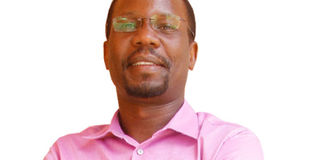Imagine Uganda, Rwanda had a woman as president

At a public dinner three years ago, a friend seated next to me asked about the gender split of the workforce at the not-for-profit organisation where I work. 60-40, men-women, I answered, feeling good.
My feminist friend was impressed, sort of. Her next question: how many women do you have in top management? I almost rolled my eyes at her, if only I knew how.
Our management team of five has one woman. My friend told me that was sad because, clearly, women were underrepresented at the key decision-making table. Defensive mode kicked in. I mumbled on about history and how the organisation was founded by two men and that when the transition happens possibly we will have more women as members of the top team.
The underrepresentation of women in boardrooms and such spaces is a familiar story across the world. Many times it sounds just like one of those stories out there in the air with no particular resonance at a personal level until you think of it in terms of opportunities for your talented and hardworking daughter, wife, sister, mother, niece, cousin, aunt. Or, better still, until you think of it in regard to the entity you lead, if you lead any.
To not lose all the brownie points, I told my dinner interlocutor that the nine-member board of my organisation has four women, including the chairperson.
I had been forced to reflect on the issue of the balance of gender at my place of work where I have some considerable decision-making clout by virtue of co-founder status. You could also do the same starting this weekend.
Friday was International Women’s Day celebrated under the theme, #BalanceforBetter, which runs as a campaign throughout 2019. The idea is that a gender-balanced approach to work and life is good for the world because it makes “economies and communities to thrive”.
The official website breaks it down further: “Balance is not a women’s issue, it’s a business issue. The race is on for the gender-balanced boardroom, a gender-balanced government, gender-balanced media coverage, a gender-balance of employees, more gender-balance in wealth, gender-balanced sports coverage...”
The race is on for a fairer world.
One entity that has seen the advantages of having women fully engaged in its activities is Rotary — an international service organisation. The Uganda chapter, led by the Rotary Club of Naalya, has been celebrating women in Rotary for some years now. Yesterday, hundreds of female and male Rotarians and their friends gathered at the Kampala Serena to honour women Rotarians.
Hard to believe that it took decades for Rotary to admit women. Somehow, the men were comfortable in their cocoon and resisted having women as part of the club. Rotary, formed in 1905, has reaped benefits of more hands on deck since women joined in 1987 following a ruling by the US Supreme Court.
The organisation is ruing the missed opportunities and is now feverishly courting more women to join and increase their global membership, which presently lies in the lower 20 per cent. The simple rationale is this: “We know that we can do more together [as men and women] than we could ever hope to do alone [as men] …” Those are the words of Mr Ian Riseley, who was Rotary International president for 2017-18.
We can actually not only do more, but also better together as men and women to create a more beautiful world. That is a world that is peaceful, prosperous, and kinder.
Which leads one to muse as to whether if we had women as presidents in Kampala and Kigali, we would be having the craziness presently unfolding at the common Uganda-Rwanda border.
This is a hypothetical, but so much nonsense is going on that we have to get speculative. What is so hard about talking issues through candidly and resolving them?
Okay, may be talks fail. In that case, you can close your border to foreigners. But it’s utter “gangsterism” for a government to mount a blockade against its own people. Only North Korea does that sort of thing, but at least it has pretensions to being a nuclear power.
It is time for a woman as president in any of the East African Community countries and it is time to #BalanceforBetter by having many more women in positions of influence in our public and private sectors.
Things can’t get worse in any of these regional capitals.
Bernard Tabaire is a media trainer and commentator on public affairs based in Kampala.
[email protected]
Twitter:@btabaire




